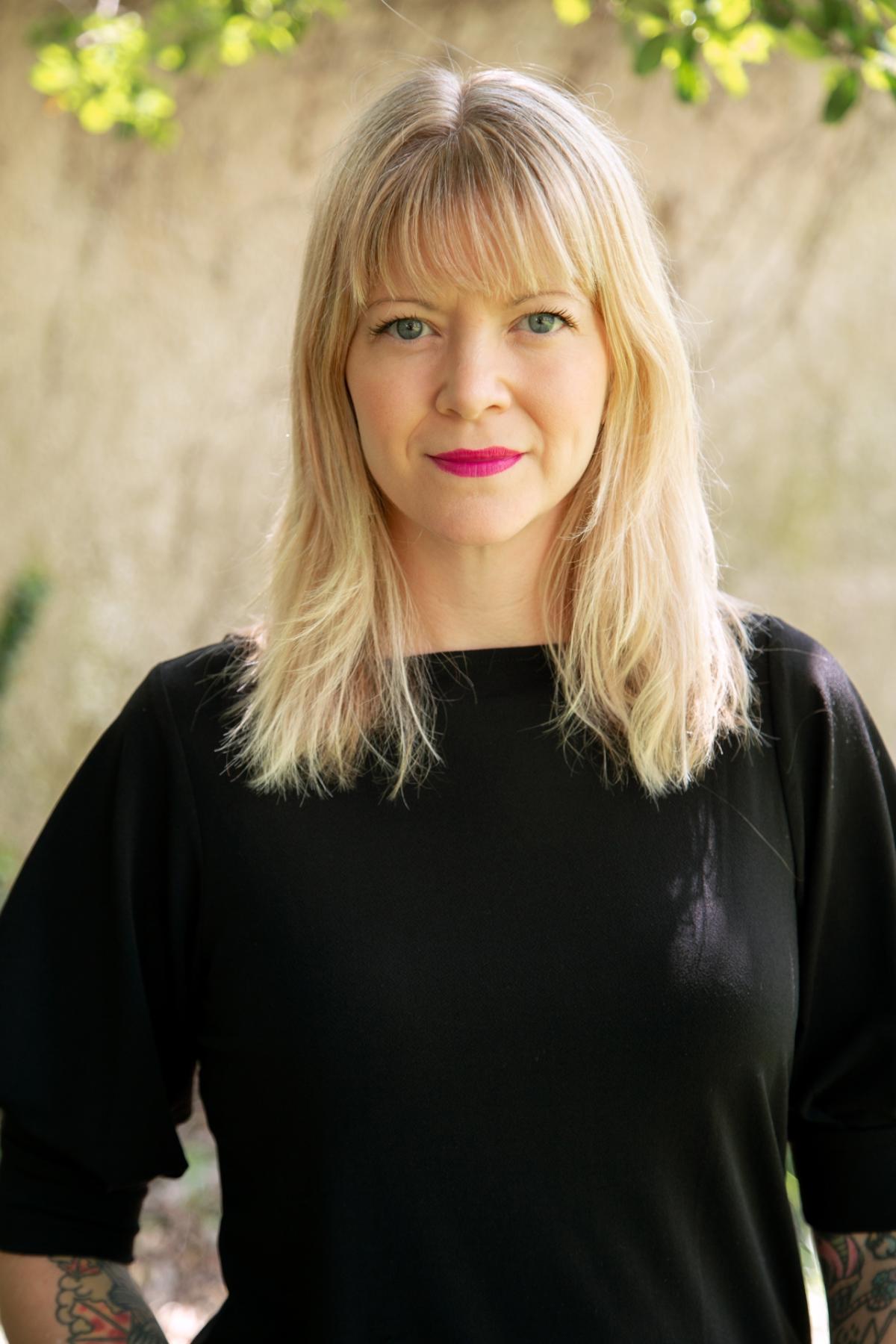Booz Allen's Sandra Marshall: Working at the Intersection of Creativity and Technology

“I love the combination of creative and tech. I love using technology to tell a story and the people and energy involved in that creative production process.”
Sandra Marshall began her career in the music industry playing in (as she puts it), “lots of bands” and running a recording studio. A decade later, she now works with Booz Allen on projects for the Defense Health Agency, National Institutes of Health, Department of Transportation, Centers for Disease Control and Prevention, and Department of Labor. While this seems like a drastic shift, it’s not as unlikely of a career path as one might think.
Telling stories through “groundbreaking” technology
Currently focusing on emerging capabilities, the move into immersive technology – including augmented and virtual reality (AR/VR) – was a natural one. This transition allowed Marshall to combine her creative and technical skills to bring non-linear storytelling experiences to life through technology. She now works on building Booz Allen’s immersive business and driving the development of new capability offerings like human performance and digital twins.
“I got hooked on VR because, as a creative, I realized that this tech was groundbreaking,” Marshall said. “VR and AR allow people to immerse themselves in a simulated environment in a way no other technology can. Combine that with today’s sensor technology and holistic approach to medicine and training and you can simulate any scenario, train for anything with no risk while eliciting authentic reactions you can measure with accuracy. From a therapeutic perspective, you can take people away from the reality of everyday work. It provides the power to create new worlds – anything you want – and have people believe they are real.”
Training from a distance
Marshall and others agree that now is the time to invest in immersive training to deliver instruction when people cannot access facilities or equipment. Immersive training offers total engagement by allowing trainees to experience events in a simulated environment, leading to fast initial comprehension and strong long-term retention – two elements that are crucial to addressing educational and training challenges in a rapidly changing, digital world.
According to Marshall, there are several ideal scenarios for an immersive training solution:
- You’re training on tasks that are difficult to replicate: Like customer experience or empathy training, you can repeat even complex, large-scale scenarios with ease with immersive technology.
- When you must train large numbers of people or deliver tailored experiences to many user groups: With immersive training, you can repeat a training session with multiple different scenarios for any number of employees without increasing the cost.
- You need assistance collecting multiple data points: Immersive training can collect both hard and soft metrics.
- Trainings rapidly evolve or require updates: Because immersive training scenarios are software-based, you can update them more easily than options like live-session training.
In a recent article on HR Dive magazine, Marshall shared, “The good news is that you can start small. If you decide that immersive training is right for your organization, you don’t have to jump in with a huge investment from the beginning. You can start with a pilot program that lets you test the technology and determine its value and then use those insights to inform a larger immersive training integration strategy when your organization is ready.”
Shaping the future of human performance
As COVID-19 brings so many aspects of our world online, Sandy and her team have been hard at work thinking through what this means for society’s “new normal”. Through analyzing what technologies are being developed today to improve how organizations operate and train virtually, Marshall has been taking her work with VR and AR one step further combining immersive simulations with data-centric athlete management systems to optimize the physical and psychological performance of health care workers, military soldiers, and even athletes through the firm’s human performance capability.
“Using our powers for good”
Marshall and her team at Booz Allen are particularly interested in technology’s potential to make a positive and, in some cases, lifesaving difference. Currently, her team is working with the Centers for Disease Control (CDC) on a virtual laboratory to advance the use of technology in training and simulation. They also recently delivered a solution called Emergency Medicine VR to help a defense client better train for and perform triage in emergency situations.
“Working in the immersive and human performance space, I have witnessed firsthand the direct impact this innovative technology can have for our clients. Working in government consulting has provided me the opportunity to take part in important missions with wide-reaching impact and life-changing implications for both federal employees and our nation’s citizens,” Marshall said.
Learn more about human performance, innovation, and careers at Booz Allen.

